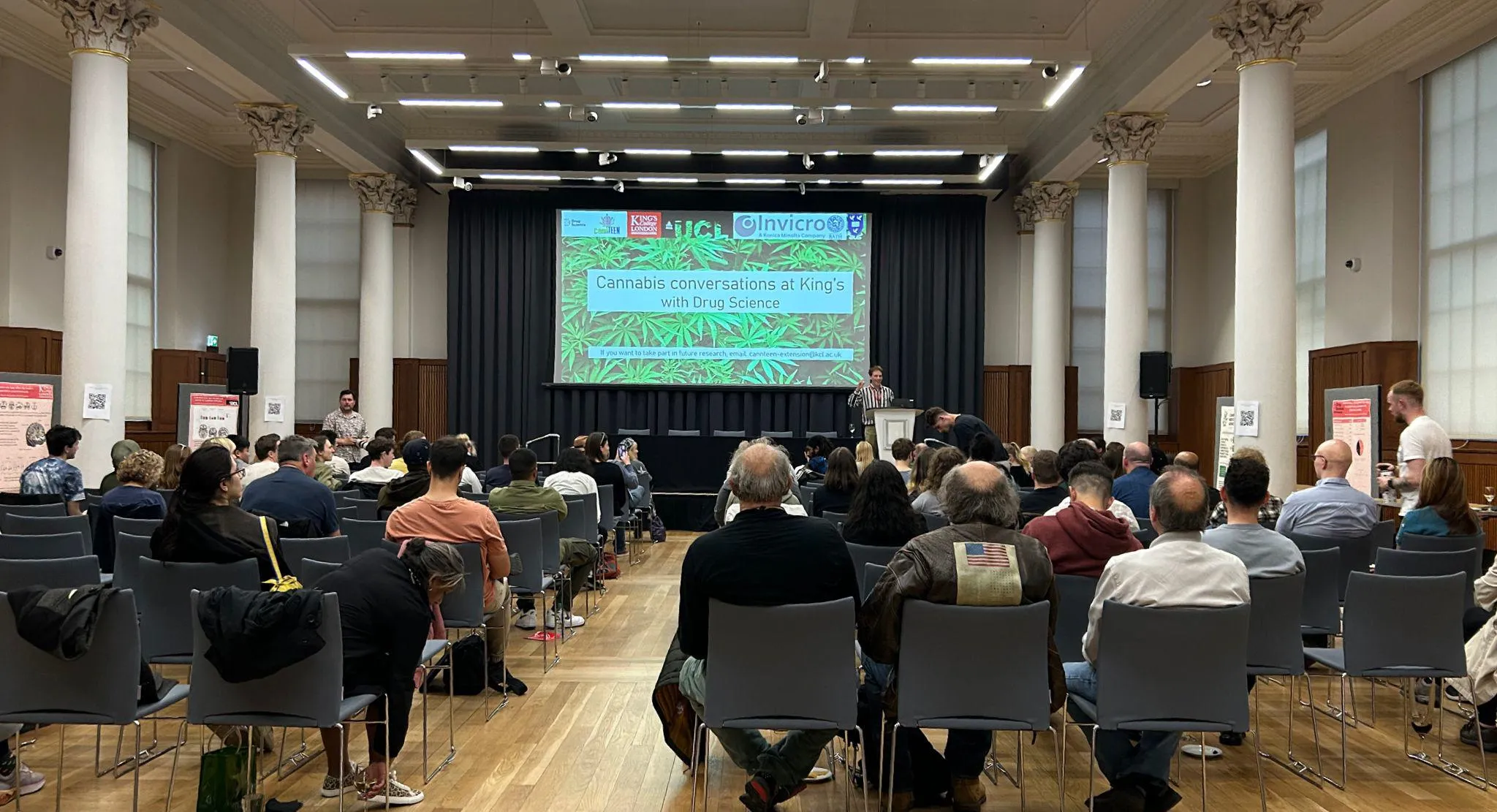
Throughout the evening, we hosted a series of lightning (5-minute) talks from eight leading cannabis scientists. These focused on our large ‘CannTeen’ project about the impact of adolescent cannabis use, controlled cannabis administration experiments, and the benefits of medical cannabis using data from Drug Science’s T21 study.
The talks were followed by a researcher ‘carousel’ and poster session, where guests spoke to researchers in a relaxed atmosphere. Finally, we ran a panel discussion where four researchers answered questions on harm reduction, cannabis policy, and the different strengths and drawbacks of randomised control trials versus observational studies when scrutinising cannabis as a medicine.